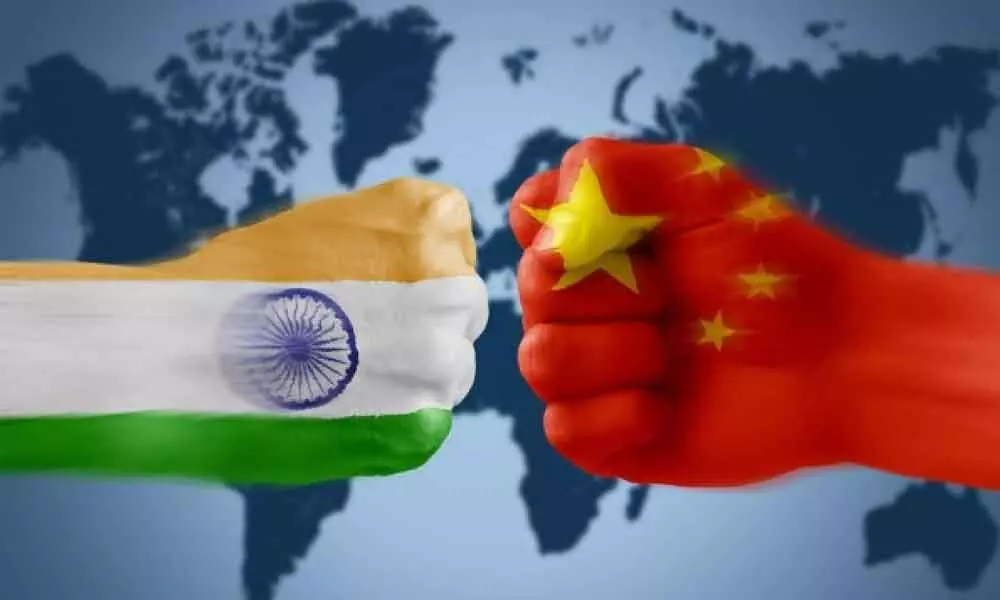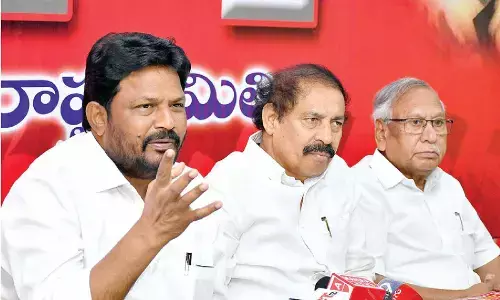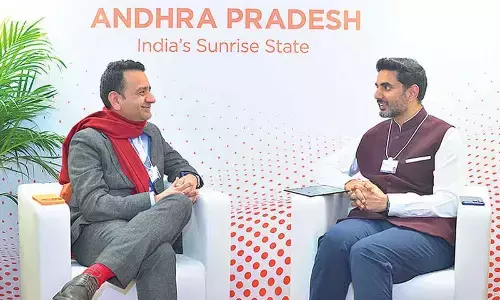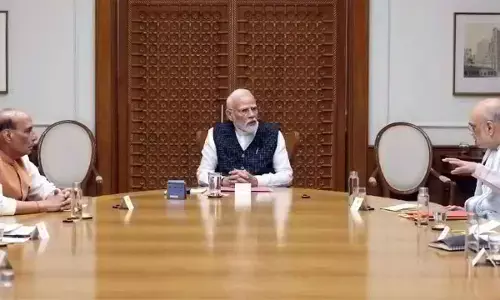Why Indian, Chinese economies decoupling?

Why Indian, Chinese economies decoupling?
Today, India is again in a mood to defy experts and stand up to China
India has strong geopolitical, historical and economic reasons to disentangle itself from China's arms. Many experts argue India is the weaker power unable to take on China. In an article in Foreign Policy, James Crabtree argues that a trade war with China would be a bad idea for India.
In his view, India's "military is inefficient, underequipped, and dogged by procurement corruption scandals". To develop its military strength, India needs a dynamic economy, and an "inward economic direction" would only benefit China in the long run. Therefore, an India-China decoupling is a terrible idea.
These analysts are wrong. Their argument against decoupling is based on three implicit assumptions. First, India is a deeply-divided country unable to act or respond decisively. Second, India is dependent on the Chinese economy for its growth. Third, China's rise is inexorable and India has no option but to come to terms with it. These assumptions are true, but it is an error of judgment to treat them as unqualified truths.
For Indians with longer historical memories than many of these experts, these arguments sound familiar. Just as India stood up to the US on the nuclear issue in the 1990s, it is capable of standing up to China in 2020. An India-China conflict is highly undesirable.
Ideally, New Delhi and Beijing should be able to work something out over endless cups of tea. However, sanctimonious advice from foreign experts about dire consequences of an India-China decoupling has to be taken with a bucket, not a pinch, of salt.
In 1998, India went nuclear despite dire predictions for its economy. Many in Washington assumed that India depended on the West for its economy. Barely seven years prior, India had experienced a serious financial crisis. The Gulf War and slowing exports to the US crippled an economy by rising deficits and increasing debt.
The precipitous decline of the Soviet Union meant India no longer had a godfather to bail it out. So severe was India's 1991 currency crisis that it had to pledge its gold reserves and liberalize its economy to get a bailout from the International Monetary Fund. In 1998, India was better off than in 1991 but certainly not in a strong position. Nuclear tests put it under immense pressure.
At the UN, the Conference on Disarmament condemned Indian nuclear tests. In the preceding years, India had watched the West ignore the 1989 Tiananmen Square crackdown and fete China for its economic reforms. Condemnation for nuclear tests strengthened, not weakened, India's response. It stood up to the West, ignored experts and upended nuclear apartheid. Today, India is again in a mood to defy experts and stand up to China.
As troops amass on the India-China border, a full-scale economic war has broken out. It is leading to a structural break in the Indian economy. Both public opinion and political leadership is now committed to decoupling from China. In India, there is a ban on 59 Chinese apps by government authorities. Major trade bodies have formally announced boycotts of Chinese products.
For instance, the Confederation of All India Traders (CAIT) has listed 3,000 such products. CAIT is a national umbrella organization with 40,000 smaller trade bodies and 70 million traders as members. The government has tightened country of origin rules for e-retailers and other sellers.
Demand for Chinese products is declining. Xiaomi is no longer India's top-selling phone. Samsung has replaced it. Increasingly, selling Chinese goods using Southeast Asian free trade agreements is becoming difficult. The existing business model of buying in China and selling in India is under pressure.
First, India enhanced trade ties with China not only for economic reasons but also geopolitical ones. Becoming a key market and investment destination for China was supposed to reduce the risk of conflict and wean Beijing off Islamabad. Aggressive Chinese actions have made India reconsider this strategy and change tack.
Second, India's manufacturing sector is reasonably well developed but has suffered from Chinese competition since China joined the World Trade Organization (WTO) in 2001. A 2018 parliamentary report concluded that Chinese imports were playing "a negative role for (India's) domestic industry".
India is not alone in having concerns about China's abuse of WTO rules. A 2018 report to the US Congress expressed concern at "China's continued embrace of a state-led, mercantilist approach to the economy and trade". It detailed "substantial costs borne by WTO members as a result of China's problematic trade regime" and the challenges presented by its "non-market economic system". Given China's track record, there is a case to be made for India taking a more protectionist path.
Since 1978, China has followed the American playbook on steroids. It has powered through the largest and fastest industrialization in history. Its companies enjoy the advantages of infrastructure, cheap financing and political support. Therefore, they have been able to achieve economies of scale.
As a result, Indian companies have been blown away. An India-China decoupling might give sectors from aerospace components to advanced pharmaceuticals a second chance.
Third, Chinese imports into India are nice-to-have, not must-have, goods. Demand for them is elastic unlike the inelastic demand for energy from the Middle East and the US. An India-China trade war that leads to a decoupling of the two economies could lead to short-term pain but has a strong rationale for the longer term.
In any case, experts forget that India is unlikely to turn entirely inward as it did after independence in 1947. Recently, billions of dollars have poured into India from the US. Reliance Jio, an Indian mobile internet company, raked in $15 billion in 10 weeks. This is indicative of a deeper trend. Given new geopolitical imperatives, India is now looking to boost economic ties with friendly powers. It wants Korean, Japanese, European and American firms to set up shop in the country.
Many economists predict a short-term price shock as Chinese goods stop coming into the country. They forget that India has struggled with jobless growth even during the best of times. Decoupling with China could boost domestic manufacturing not only for large but also for medium and small industries.
This would increase employment, tax revenues and even demand thanks to a multiplier effect. Improved job figures further increase political support for decoupling and decrease India's need to subsidize agriculture so heavily. For decades, agricultural subsidies have put pressure on public finances. If a lower amount is spent on subsidies, pressure on the fiscal deficit would abate.
To sum up, India has strong reasons to decouple and no longer consider WTO rules sacrosanct. A tectonic shift is underway. After World War II, a new rules-based order emerged.
The end of the Cold War strengthened this order and led to visions that Western democracy was the final destination for all societies. With polarization and partisanship at home, Western democracies themselves are in peril. The order that emerged in 1991 is crumbling and a new one is about to emerge. History offers us lessons as to what to expect.
Atul Singh, Manu Sharma & Vikram Sood
(Vikram Sood is former RAW chief and Atul Singh is a journalist, CEO & Editor-in-Chief of Fair Observer. The views expressed are personal)
















